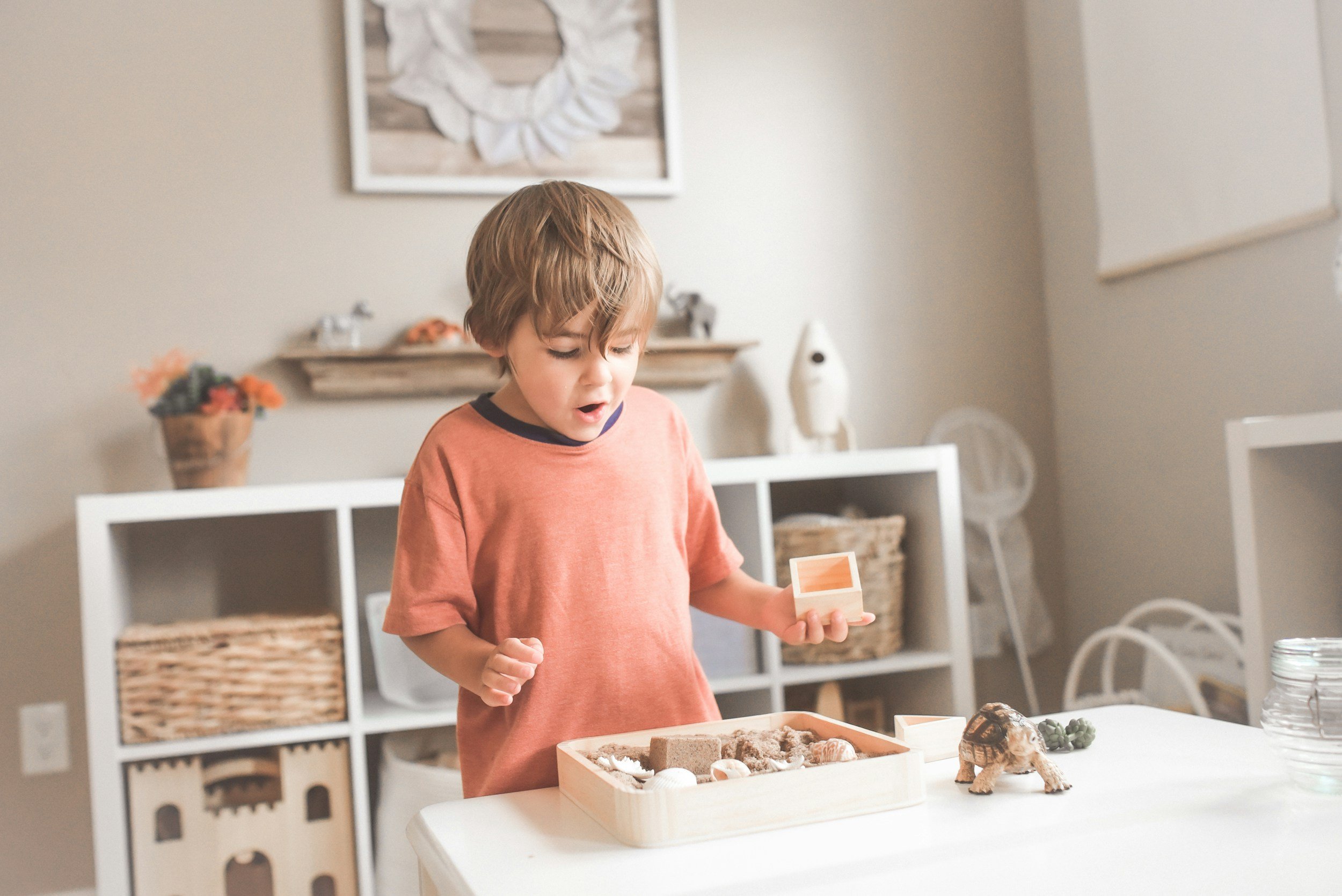Learn Sprout Resource Hub
Tools for Growth

Earth Day the Montessori Way: Age-Appropriate Activities for Your Child
Earth Day offers the perfect opportunity to nurture your child's innate connection with nature through meaningful, hands-on experiences. In the Montessori approach, we believe children develop a genuine love for what they understand and experience firsthand. Rather than teaching environmental concepts through abstract lectures, we invite children to engage directly with nature through purposeful activities tailored to their developmental stage.
When children sort recyclables with their own hands, witness seedlings emerge from soil they've watered, or participate in community clean-ups, they're not just learning about environmental stewardship—they're living it. These concrete experiences lay the foundation for a lifetime of ecological awareness and responsible citizenship.
This Earth Day, explore these age-appropriate Montessori-inspired activities designed to connect children with nature in meaningful ways, whether they're curious toddlers exploring textures in a sensory basket or thoughtful elementary students analyzing their family's ecological footprint.

Montessori Activities for Ages 3-6: Supporting Independence and Concentration
The first three years represent a critical developmental window where children absorb everything from their environment. Dr. Montessori called this the "unconscious absorbent mind" stage, forming the foundation for all future learning. During this period, babies progress from reflexive movements to purposeful exploration as young toddlers master fundamental skills like walking and early language. Support your 0-3 year old with developmentally appropriate Montessori activities: offer treasure baskets with natural materials for sensory exploration, create accessible environments with low shelves for independence, introduce simple practical life experiences like water pouring, and provide language-rich interactions through real objects and images. By understanding your child's sensitive periods and preparing thoughtful activities that match their developmental needs, you'll nurture their natural drive toward independence and discovery.

Montessori Activities for Ages 0-3: Nurturing Development in the Earliest Years
Young toddlers (12-24 months) are eager explorers ready for hands-on learning opportunities. Support their development with simple practical life activities like water pouring with small pitchers and basic food preparation. Enhance language skills through categorized object collections and picture-matching games. Develop fine motor coordination with knobbed puzzles and posting activities, while nurturing gross motor skills with push toys and safe climbing experiences. This age thrives with accessible materials that encourage independence and repetition, allowing them to practice emerging skills in a prepared environment that respects their growing capabilities and desire for purposeful activity.

The Prepared Environment: Setting Up Your Home for Montessori Learning
Create a thoughtfully designed home that nurtures your child's independence and joy in learning. Discover how to apply Dr. Montessori's concept of the "prepared environment" with practical room-by-room guidance. Learn the key principles—order, beauty, accessibility, purpose, and connection to nature—and transform your space with simple DIY solutions. Beyond physical setup, understand the essential role of the prepared adult who models respect, observation, and consistency. Start small, adapt to your unique circumstances, and watch your child thrive in a space designed for their developmental needs.

Getting Started with Montessori at Home: A Simple Guide
Creating a Montessori home environment isn't about perfectly matching a classroom or buying expensive materials. It's about thoughtfully preparing spaces where your child can discover, grow, and develop independence. The secret lies in five core principles: order that brings calm, beauty that inspires, accessibility that empowers, freedom that builds confidence, and an atmosphere that nurtures concentration.
Start small – perhaps with a simple self-care station in your bathroom or a cooking area at child-height in your kitchen. Watch as your child discovers the joy of independence, one carefully prepared space at a time. This is your invitation to transform your home into a place where learning unfolds naturally.
